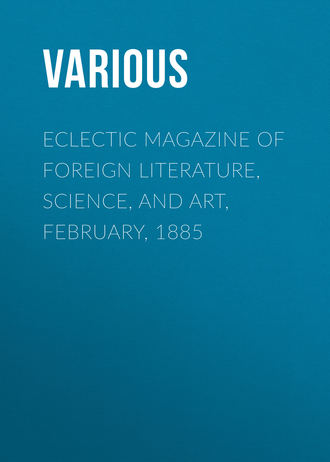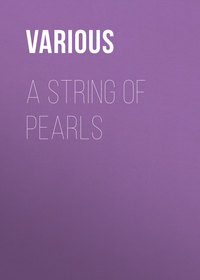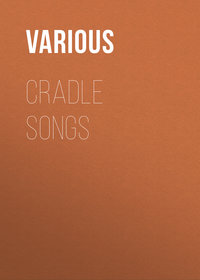
Eclectic Magazine of Foreign Literature, Science, and Art, February, 1885
The baldness of this statement, the resolute contempt of the author of it for the mere dress and ornament of language, throw not a little light upon the reason why, after the lapse of a hundred years, we still listen with so quick an interest and so personal an affection to all that is recorded of Johnson’s speech. The age in which we live cannot be entirely given up to priggishness and the dry rot of sentiment, so long as any considerable company in it are wont to hang upon Johnson’s lips, without being offended by his jocular brutality, his strenuous piety, or his unflinching enmity to affectation. Of course a class still exists, perhaps it never was more numerous than it now is, whose nerves and lungs can endure the strong light and tonic air of Johnson’s vigorous genius, and who rejoice to think that no one ever tamed their tiger-cat. To these such an anniversary as the present, not needed to remind them of one who is almost as real to them as any of their own relations, is yet valuable as giving them a landmark from which they may look back and judge the effect that distance has upon the apparent and relative size of such a figure. This can be the only excuse, in a brief note such as this must be, for dealing with facts and personages which are the absolute commonplaces of literary history. We may know our Boswell by heart, and be prepared to pass a searching examination in Rasselas and in the Rambler, and yet be ready to listen for a moment with surprise to the voice which reminds us that a century has passed away since the great pontiff of literature died.
How then does the noble and familiar figure strike us in looking backward from the year 1884? In “constant repercussion from one coxcomb to another,” have the sounds which he continued to make through a career of stormy talk ceased to preserve all their value and importance for us? How does he affect our critical vision now that we observe in relief against him such later talker-seers as Coleridge, De Quincey, and Carlyle? To these questions it is temperament more than literary acumen which will suggest the replies; and the present writer has no intention at this particular moment of attempting to forestall the general opinion of the age. His only object in putting forth this brief note is to lay stress on the curious importance of temperament in dealing with what seems like a purely literary difficulty. The personality of all other English writers, in prose and verse, even of Pope, even of De Quincey, must eventually yield in interest to the qualities of their writing. In Dr. Johnson alone the writings yield to the personality, and in spite of the wonder of foreign critics such as M. Taine, he remains, and will remain, although practically unread, one of the most potent of English men of letters.
Must we not admit now, at the close of a century, that it is practically impossible to read him? Among the lesser men that surrounded him, there are many who have outstripped him in literary vitality. In verse he lags far behind Gray and Collins, Churchill and Chatterton; nay, if the Wanderer were by Johnson and London by Savage, the former would possess more readers than the latter now attracts. In prose, who shall venture to say that Johnson is the equal of Fielding, Smollett, Hume, Goldsmith, Gibbon, or Burke? We know that he is far less entertaining, far less versatile and brilliant, than any one of these. The Discourses of his direct disciple Reynolds are more often read, and with more pleasure, than those essays of The Rambler from which their style was taken. As a dramatist, as a novelist, Johnson ranks below Douglas Home, below the inventor of Peter Wilkins. For years he labored upon what was not literature at all, for other years on literature which the world has been obliged, against its will, to allow to disappear. When all is winnowed away which has become, in itself, interesting only to scholars, there remains The Vanity of Human Wishes, a gnomic poem of tedious morality, singularly feeble in the second joint of almost every recurring distich; Rasselas, a conte in the French taste, insufferable in its lumbering machinery and pedantic ethics; the Lives of the Poets, in which prejudice, ignorance, and taste combine to irritate the connoisseur and bewilder the student. Such, with obvious exaggeration, and with wilful suppression of exceptional facts, the surviving literary labors of Johnson may be broadly described to be. The paradox is that a Johnsonian may admit all that, and yet hold to it that his hero is the principal Englishman of letters throughout the rich second half of the eighteenth century. In this Johnson is unique. Coleridge, for instance, was much more than a writer of readable works in prose and verse; but let an age arrive in which the Ancient Mariner, Christabel, and the Biographia Literaria are no longer read or admired, and Coleridge will scarcely be able, on the score of his personality alone, to retain his lofty position among men of letters. Yet this is what Johnson promises to succeed in continuing to do. No one will ever say again, with Byron, that the Lives of the Poets is “the finest critical work extant,” but that does not make Johnson ever so little a less commanding figure to us than he was to Byron.
Let us consider for one moment the case of the unfortunate tragedy of Irene. There are very few of us who are capable of placing our hands upon our bosoms in the open sight of heaven and swearing that we have ever read it quite through. The Mourning Bride still counts its admirers, and even Cato, but not Irene. Who among the staunchest and strongest Johnsonians can tell what hero it was that confessed, and upon what occasion,
“I thought (forgive me, fair!) the noblest aim,The strongest effort of a female soulWas but to choose the graces of the day.”without peeping furtively at the text? Nevertheless Irene lives and always will live in the memory of men. But while other dramas exist on the strength of their dramatic qualities, this of Johnson’s lives on the personal qualities of the author himself. It is not the blank, blank verse, nor the heroine’s reflections regarding the mind of the Divine Being, nor the thrilling Turkish fable, nor the snip-snap dialogue about prodigies between Leontius and Demetrius, that preserves the memory of this tragedy. It is the anecdote of how Walmsley asked, melted by the sorrows of Irene, “How can you possibly contrive to plunge her into deeper calamity?” and how Johnson answered, with a reference to his friend’s office, “Sir, I can put her into the spiritual court!” It is the eagerness which George III. expressed to possess the original MS. of the play. It is the monstrous folly which made Cave suppose that the Royal Society would be a likely body to purchase the copyright of it. It is the screams of the audience at Drury Lane when they saw Mrs. Pritchard with the bowstring round her neck. It is the garb in which Johnson insisted on dressing to look on at the performance, in a scarlet waistcoat, and with a gold-laced hat on his head. It is the tragedian’s unparalleled frankness about the white silk stockings. These are the things which we recall when Irene is mentioned, and if the play had been performed in dumb show, if it had been a ballet, an opera, or a farce, its place in literary history would be just where it is, no higher and no lower. Such is the curious fate which attends all Johnson’s works, the most interesting of them is not so interesting as the stories which cluster around its authorship.
This personal interest which we all feel in the sayings and doings of Johnson is founded so firmly on his broad humanity that we need not have the slightest fear of its cessation or diminution. The habits of thought and expression which were in vogue in the eighteenth century may repeat themselves, as some of us expect, in the twentieth, or our children may become more captious, more violent, more ungraceful in their tastes than we are ourselves. The close of the preface to the Dictionary may cease to seem pathetic, or may win more tributes of tears than ever. The reputation of Johnson does not stand or fall by the appetite of modern readers for the Life of Savage or even for the Letter to Lord Chesterfield. It depends on the impossibility of human beings ever ceasing to watch with curiosity “the very pulse of the machine” when it is displayed as Johnson displayed it through the fortunate indiscretions of his friends, and when it is on the whole so manly, wholesome, brave, honest, and tender as it was in his. There will always be readers and admirers of what Johnson wrote. Let us welcome them; but let us not imagine that Johnson, as a great figure in letters, depends upon their suffrages. The mighty Samuel Johnson, the anniversary of whose death both hemispheres of the English-speaking race will solemnise on the 13th of this month, is not the author of this or that laborious contribution to prose or verse, but the convulsive invalid who “see-sawed” over the Grotius, the courageous old Londoner who trusted his bones among the stormy Hebrides, the autocrat of the Literary Club, the lover of all the company of blue-stockings, the unequalled talker, the sweet and formidable friend, the truculent boon-companion, the child-like Christian, who, for all his ghostly terrors, contrived at last “to die contented, trusting in the mercy of God, through the merits of Jesus Christ.” If the completed century finds us with any change at all of our feelings regarding him, it is surely merely this, that the passage of time is steadily making his faults seem more superficial and accidental, and his merits more striking, more essential, more pathetical and pleasing. —Fortnightly Review.
THE DEMOCRATIC VICTORY IN AMERICA
BY WILLIAM HENRY HURLBURTThe United States being, and having been from the outset of their history, a Democratic Republic, it may well puzzle a European reader to understand why American “Republicans” should bewail a “Democratic” triumph, or American “Democrats” exult in the overthrow of a “Republican” party.
Yet it may not be impertinent to suggest that in no country are the names of political parties or factions commonly selected by a committee of philologists with an eye to making the national politics intelligible. What notions of English history are conveyed by the mere names of “Whig” and “Tory” or even of “Liberal” and “Conservative” to a person unfamiliar with the political history of England? What light is thrown on the history of Byzantium by talking of the “Blues” and the “Greens,” or on the history of Florence by casual references to the “Bianchi” and the “Neri”?
When one asks for the origin of such names, history is apt to give him no better answer than that of the small African child who was invited by a sympathetic lady to explain how she came to have six toes on one of her feet – “they growed so!”
This is so emphatically true of American political parties that my readers must pardon me if I take them back to the “beginnings of things” for an accurate perspective of the recent Presidential election in the United States, and of its significance.
The existing Constitution of the American Union was adopted in 1789 by the citizens of thirteen new-born Republics who had grown up to manhood in the then anomalous condition of subjects of the British Crown enjoying all the privileges and immunities of local self-government in thirteen distinct and independent colonies which differed among themselves in origin, in social traditions and habits, and in religion, almost as widely as Wales differs from Ireland, or Ireland from Scotland. These colonies had co-operated from time to time with the mother country for the common defence against a common enemy, colonial France. And they had been united under a temporary political bond in the great revolutionary war of 1776, by a common spirit of resistance to that Parliamentary despotism, tempered by corruption, which after the English Revolution of 1688 and the establishment of the House of Hanover assumed to itself the place originally held by the British Crown in the allegiance of these stalwart “Home-Rulers” beyond the Atlantic.
At the peace of Versailles in 1783 Great Britain found herself compelled to recognize the independence of all and of each of these colonies, which thenceforth took their places in the family of nations as separate and sovereign states. They were recognized in this capacity not in block, but severally and individually, each by its own territorial designation; and from the moment of such recognition each of them felt that it was absolutely free, and “of right ought to be free,” saving so far as it had bound itself to the then existing confederacy of 1778, to adopt any form of government which might suit the humor of its citizens, and to form any alliances advantageous to its own interests. The States were, indeed, at that moment bound together for certain specified purposes by a federal compact formed during the war in 1778; but this compact sate so lightly upon them that it was not only impossible to compel the several States into an exact fulfilment of confederate obligations, but very difficult even to induce them to get themselves properly represented under it for legislative and executive purposes at the then federal capital of Annapolis in Maryland. A striking illustration of this is given in a private letter, now in my possession, written by Thomas Jefferson of Virginia, the author of the Declaration of Independence of 1776, and eventually the founder of that great Democratic party under the Union of 1789, which now once more, after a quarter of a century of extra constitutional experiments in government, has been commissioned by the voters of the United States, in the election to the Presidency of Governor Cleveland of New York, to restore in all its parts, and re-establish on its original and enduring foundations, the sway of the Federal Constitution of 1789. Writing from Annapolis to a friend in Virginia in regard to the negotiations at Paris which had secured the recognition of American Independence, Mr. Jefferson, in December 1783, complains bitterly of the indifference of the States to this momentous event. Under the ninth article of the then existing confederate compact of 1778, the assent of nine States represented in the Congress at Annapolis assembled was necessary to the ratification of any treaty with a foreign power. The time fixed for the ratification by Congress of the Treaty of Versailles was rapidly running out at the date of the letter to which I refer, and the Congress had been long in session. “We had yesterday, for the first time, seven States,” exclaims Mr. Jefferson; and he goes on to express his concern lest the necessary quorum of nine States should not be assembled before the expiration of the term fixed for ratification in the treaty by which, after seven years of an exhausting war, their independence was to be established!
I dwell on this point in order to emphasise the truth, vital to any intelligent appreciation of the great change now impending in the administration of public affairs in the United States, that the commonwealths by which the American Union was established were, from the first, in the opinion of their inhabitants, sufficient each unto itself; and this because each of these commonwealths was indeed a well-organised body politic, the members of which had long managed their domestic affairs under one or another form of chartered authority, after their own fashion; and, for the protection within their own borders of life and of property, had adjusted to their several situations and necessities the maxims and principles of English liberty defined and guarded by law. These States were the creators, not the creatures of that “more perfect Union” which (the Confederacy of 1778 failing) was finally formed by them after all its features had been discussed, debated, and redebated, not only in a Convention of the States assembled for that purpose in 1787, but in the several States subsequently, with a fulness, vigor of thought, and intelligence which, in the opinion of others than my own countrymen, make the volumes of Elliott’s Debates on the Constitution the most valuable treasury of constitutional politics in existence.
The framers of the American Constitution of 1789 were no rude uninstructed settlers, summoned from the axe and the plough to improvise an orderly government. The traditions of the older States went back to the struggle between the prerogative and the taxpayers of England under the Stuart kings. Virginia, the “Old Dominion” of Elizabeth and the Restoration, with her Established Church, her College of William and Mary, and her legends of the Cavaliers, was in no hurry to believe that her consequence could be much enhanced by any merger of her sovereignty in that of a federal union with Charles the Second’s Crown colony of Rhode Island, and with the gallant little community which keeps green on the banks of the Delaware the memory of the self-sacrificing and heroic Thomas West. The colonial story of the great central State of New York had made its sturdy people familiar with those ideas of federated liberty on which the fabric of Netherlandish independence had been founded. The curious in such matters have found an indication of the extent to which the spirit of the Netherlands influenced the framers of the new American republic in the fact that when the style and title to be taken by the American President were under consideration, Washington inclined to the notion that the Chief Magistrate should be addressed and known as “His High Mightiness.”
Nor were the citizens of the youngest of the colonies disposed to put the control of their persons and their purses unreservedly into the hands of any imperial central authority.
After the Constitution of 1789 (to take the date from the day, April 30, 1789, on which Washington was inaugurated at New York as the first President of the United States) had been definitely adopted by eleven States, the two States of North Carolina and Rhode Island still withholding their ratification of the instrument, remained as foreign powers outside of the Union, the former until the 21st of November 1789, and the latter until the 29th of May 1790.
A notable date this last!
Never was a great compact more opportunely framed and ratified!
Almost upon the morrow of these final adhesions to the “more perfect Union,” the storm of the French Revolution broke upon the world, bringing with it great international convulsions which affected every nerve and fibre of the social, political, and industrial life of America, and tested to the utmost every seam and joint in the fabric of the new American Republic. The excesses of Jacobinism in France strengthened the doubts and fears of many excellent persons in America who had small faith in the capacity of the people for self-government on a grand scale, and who accepted the Constitution of 1789 not as a final and trustworthy frame of polity, but because, while they thought it, to use the language of one of the ablest of their number, “frail and worthless in itself,” they hoped to see it lead up to the eventual establishment of some such “splendid central government” as in our own times Mr. Seward, the true founder of the “Republican” party which has just been defeated in the United States, used to dream of and did his best to build up.
The influence of these doubts and fears upon the politics of the new American Republic was fortunately met and countered by the genius and the faith of a group of great American statesmen, the friends and associates of Thomas Jefferson; and the fundamental divergence between the controlling ideas of the two great parties which now occupy the field of American politics goes back to this closing decade of the eighteenth century. When the existing Constitution was first submitted by the Convention of 1787 to the people and to the States, those who, with Alexander Hamilton of New York, and James Madison of Virginia, advocated its adoption were called “Federalists”, and those who, with Samuel Adams of Massachusetts, and Patrick Henry of Virginia, opposed it as threatening the rights and sovereignty of the States, were called Anti-Federalists. After its adoption the latter party took the name of “Strict Constructionists,” their object being to bind down the administration of the new system to the closest and most rigid interpretation of the powers conferred by the States upon the Federal Government; while their opponents were styled “Broad Constructionists.” Both parties happily had such confidence in the patriotism and wisdom of Washington that he came into power as first President by a unanimous vote, and selected his first cabinet from the leaders of both the great parties which had contended over the adoption and the construction of the new Constitution. At the first session of the first Congress, in 1789, ten amendments to the Constitution were adopted, embodying a Bill of Rights to secure the liberties of the citizens of the several States, and explicitly reserving to the several States “respectively” or to the people, “all the powers not delegated to the United States by the Constitution nor prohibited by it to the States.” These amendments Thomas Jefferson counselled the friends of Home Rule and State Rights to accept as an adequate guarantee of both. His wise advice was taken, and the great political party which was formed under the Constitution took, at his suggestion, the name of the “Republican Party.” The name was appropriate enough to that party which held each State of the new Union to be indeed an independent “Republic,” and regarded the “Federal” Government as the agent and protector of the “Republican” independence of each State.
It gathered to itself a kind of passion, too, in the popular heart from the then very general conviction that the leaders, at least, of the “Federalist” party secretly desired to see these “Republics” disappear into some form of centralised monarchy.
As the French Revolution grew more portentous and interesting, and its agents busied themselves with efforts to draw America into the European contest as an ally, or rather as a dependency, of Republican France, the political antagonism of the “Federalists” and the “Republicans” grew dangerously high and hot. Men wore French or English Cockades in the streets of New York and Philadelphia. A distinguished public man of Massachusetts once told me that his earliest recollection of any political event took him back to a day on which a friend of his father, who was a leading Federalist of Massachusetts, met him in the streets coming home from school, and, giving him a bright Spanish dollar, said, “Now, Jack, run as fast as you can to your father’s court, and tell him from me that Robert Spear’s head has been cut off, and he must give you just such another dollar!” News came at long intervals then from Europe to America, and the tidings of the fall of Robespierre had that morning reached Boston.
Under the stress of these emotions the “Republicans” took to denouncing the “Federalists” as “Monocrats” and “Anglomen,” and the “Federalists” retorted by reviling their opponents as “Jacobins” and “Democrats.”
The “Federalist” party held its own during the two Presidencies of Washington, and elected John Adams to succeed the “Father of his country” in 1796. Under the Presidency of Mr. Adams the “Federalists” lost their heads, and the “Republicans” in the year 1800 took possession of power under the first Presidency of Thomas Jefferson. They had for some time been known commonly as “Democratic Republicans,” and in the ninth Congress which met under the second Presidency of Jefferson in 1805 they boldly took the name of “Democrats,” in the spirit of good Bishop Willegis, who put the wagoner’s wheel into his coat-of-arms, and like the “Gueux,” the “Huguenots,” and the “Roundheads,” extracting “glory out of bitterness.”
From that time to this the “Democratic” party has continued to be what Jefferson made it, the party of “Home Rule” as opposed to centralisation, and of a strict construction of the organic law by which the provisions and the limitations of Federal power are sanctioned and defined, as against that plausible paternalism under cover of which, in the language of a great living leader of the Democratic party, Senator Bayard of Delaware, “the general government assumes guardianship and protection over the business of the private citizen, and functions of control over matters of domestic and local interest.”









